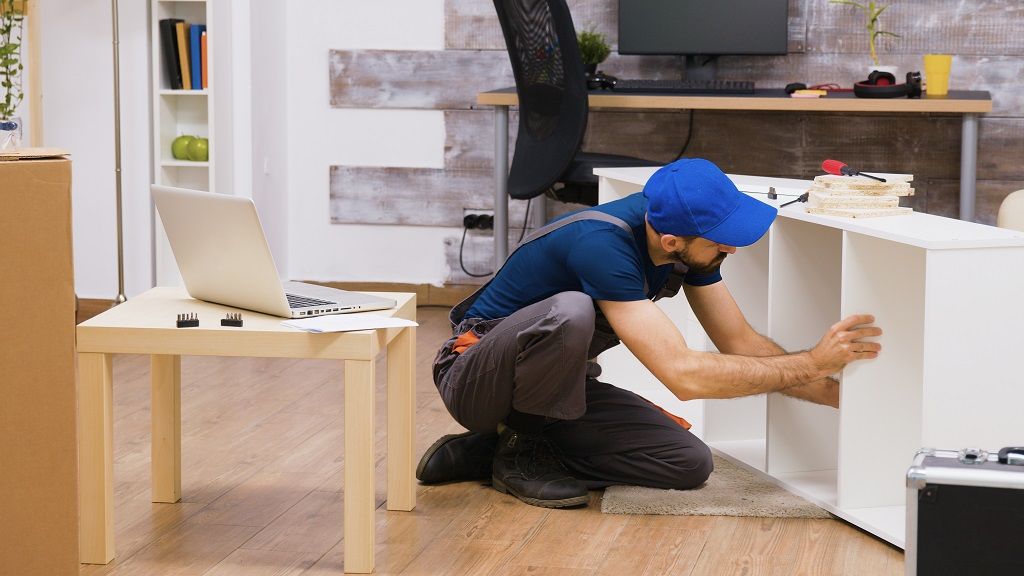Can Moving Companies Transport Firearms? Or Is It Illegal?
TLDR;
Yes, some moving companies can legally transport firearms—but not ammunition. However, the legality depends on federal and state laws, and strict guidelines must be followed.
Moving With Guns: What You Need To Know Right Away
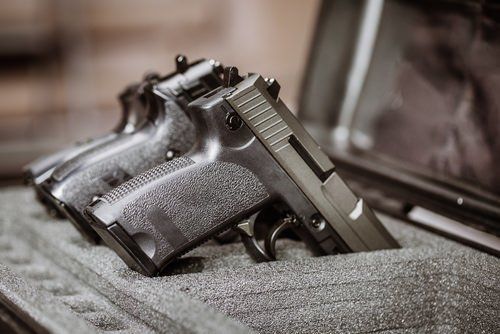
If you're planning a move and wondering if you can pack up your firearms along with your furniture, here's the direct answer:
- Yes, firearms can be transported by some moving companies
- No, most moving companies will not handle ammunition
- It is not illegal, but strict regulations apply
Now, let’s break down exactly what those regulations are and what you need to do to move your firearms safely and legally.
Federal Laws On Firearm Transportation
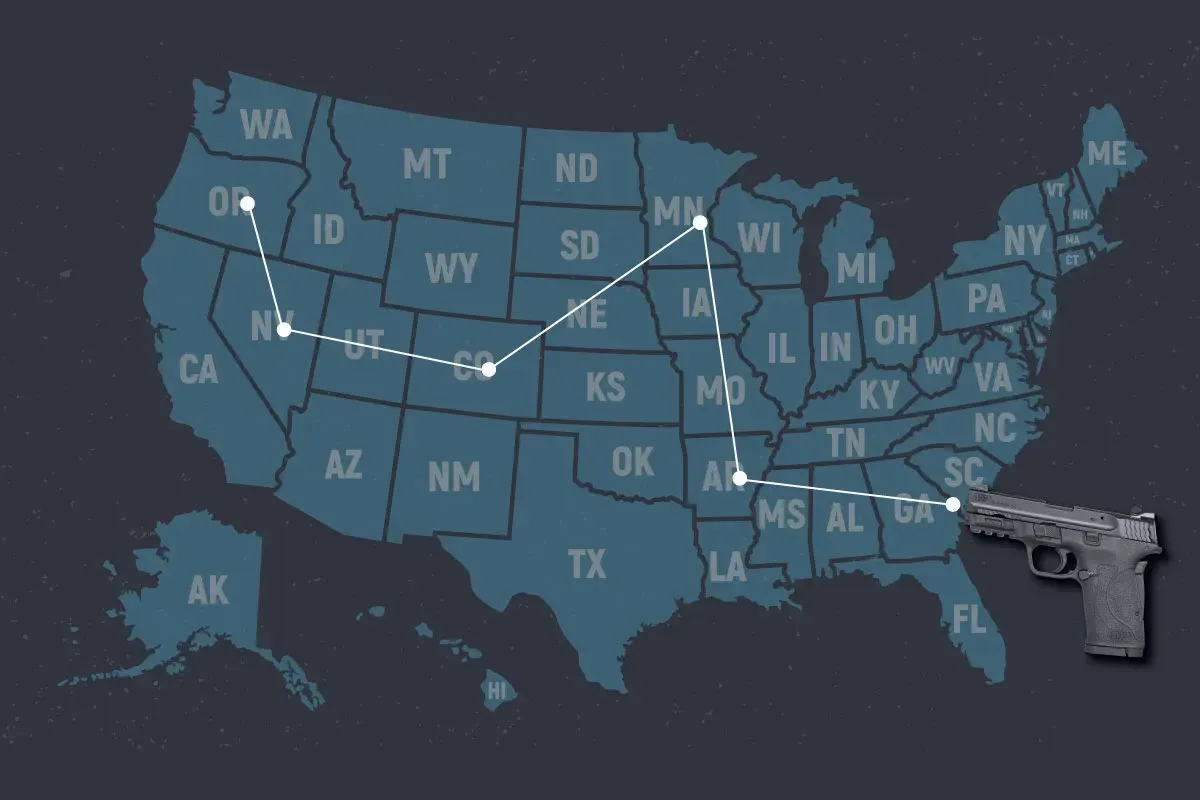
Under the Firearm Owners Protection Act (FOPA), it's legal to transport firearms across state lines as long as:
- The firearm is unloaded
- It's stored in a locked container (not the glove box or console)
- It's not readily accessible from the passenger compartment
This applies when you're traveling through states where your gun might otherwise be illegal—FOPA protects you during that journey as long as you’re passing through.
Important:
FOPA doesn’t override
state laws. If you stop overnight in a state where your firearm isn’t legal, you may be in violation.
State and Local Gun Laws: A Patchwork of Rules
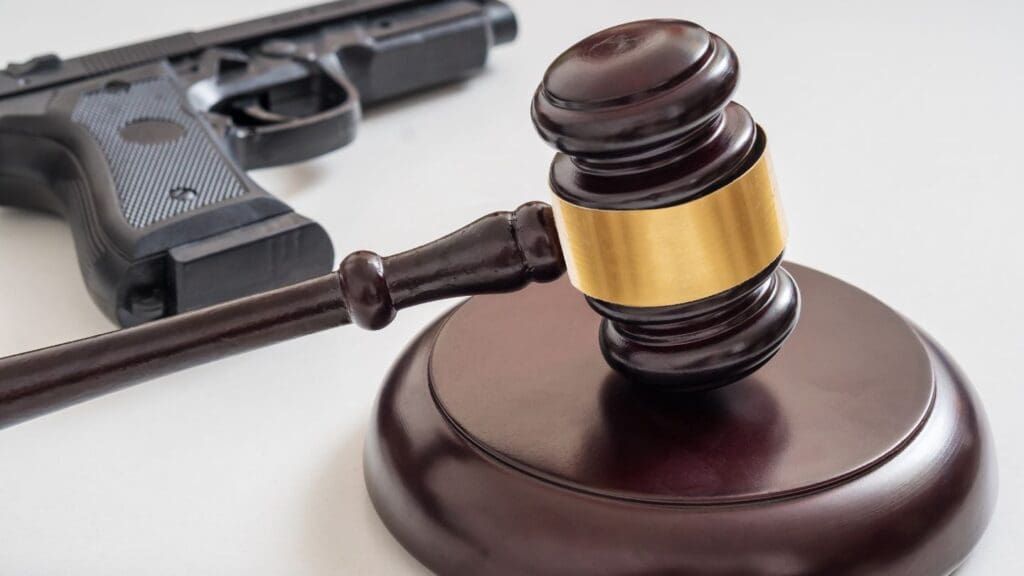
Firearm transport laws vary widely from state to state. What’s legal in Texas may be illegal in New York or California.
Before you move, check the laws for:
- Your current state
- Your destination state
- Any state you’ll pass through
Things to consider:
- Does your concealed carry permit have reciprocity in the new state?
- Are magazine capacities restricted?
- Are certain firearm types banned?
Tip: Use a resource like the NRA-ILA or consult your local law enforcement to check current laws.
What Do Moving Companies Allow?

Do Moving Companies Move Firearms?
Some moving companies do allow the transport of firearms, under strict conditions:
- You must declare your firearms in advance
- All guns must be unloaded
- Guns must be stored in a hard, lockable case
- You may need to provide a serial number inventory list
What About Ammunition?
Most movers do not transport ammunition. Here’s why:
- Ammunition is classified as a hazardous material
- It's flammable, increasing the risk during transport
- It requires special licenses and packaging, which most residential movers don’t have
Always ask the mover directly about their ammunition policy.
How To Prepare Firearms For Moving
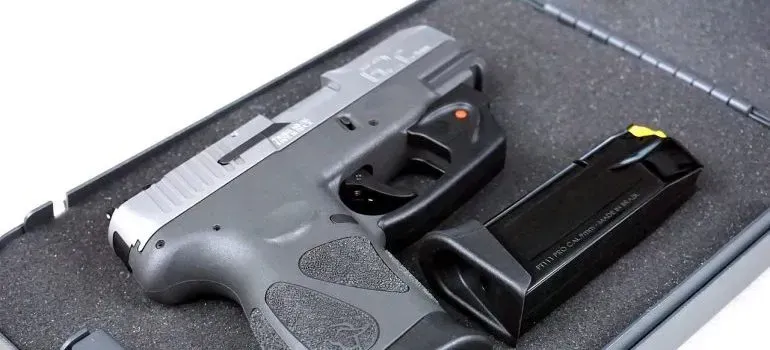
To safely and legally move your guns, follow these best practices:
Safe Packing & Inventory
- Unload all firearms completely
- Use hard, lockable gun cases for each weapon
- Pack firearms separately from ammunition (if transporting yourself)
- Label gun cases discreetly (avoid marking them as firearms)
- Create a detailed inventory list with:
- Make
- Model
- Serial Number
- Condition
Inform The Moving Company
- Let your mover know in advance about the firearms
- Ask about their specific procedures and policies
- Confirm whether you’ll need to be present during loading/unloading
Should You Move Guns Yourself?
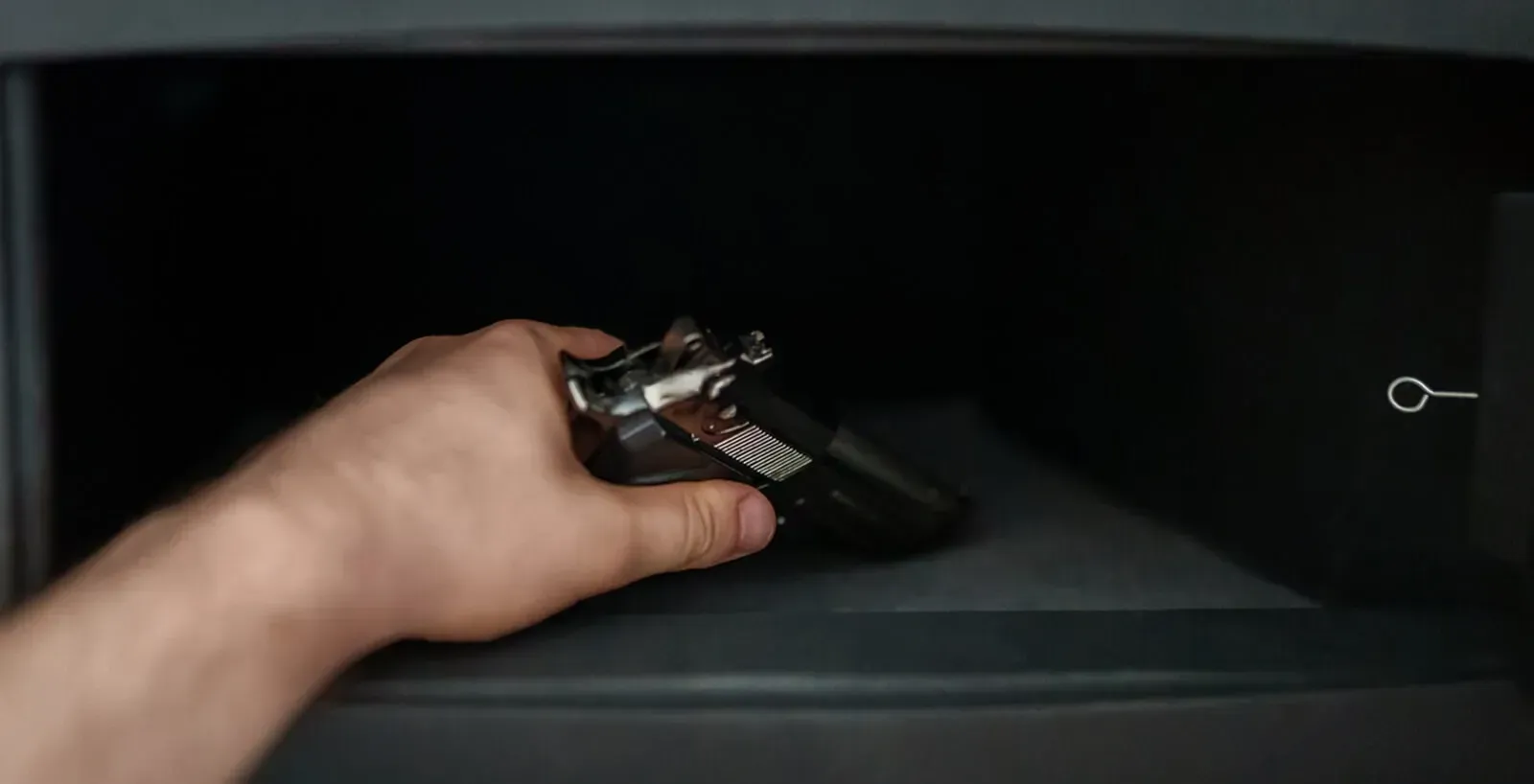
In many cases, it's safer and more convenient to transport firearms yourself. Here's why:
Pros of DIY Transport
- You retain full control over your firearms
- Avoid potential liability issues with movers
- No risk of miscommunication or policy violations
Cons
- You’ll need to research all state transport laws
- You may need to follow strict vehicle storage guidelines
- Increased personal responsibility if stopped by authorities
If you're driving your own vehicle, DIY might be your best option—especially for a shorter move.
How To Ship Firearms Legally (FFL Involved)
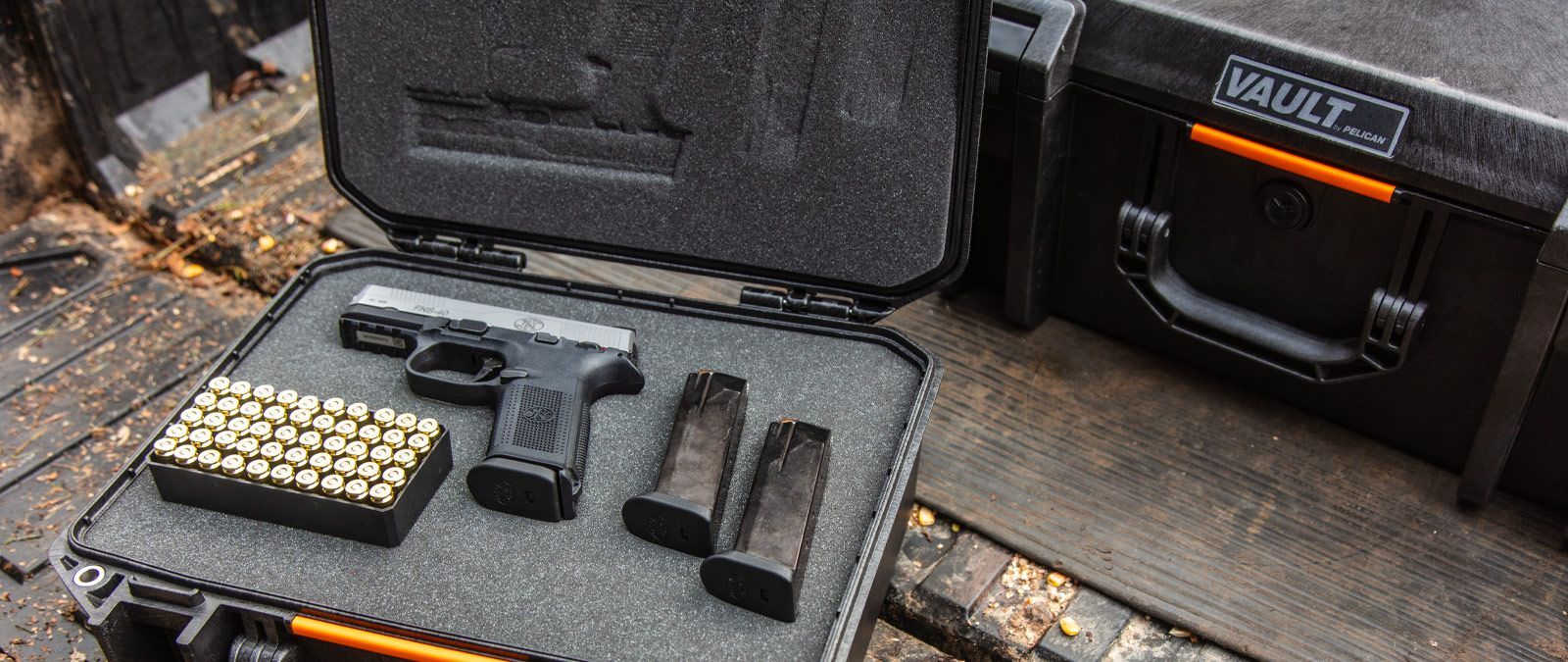
If you're relocating out of state and can't bring firearms with you personally, consider using an FFL (Federal Firearms License) holder.
What Is An FFL?
An FFL is a licensed individual or dealer authorized by the Bureau of Alcohol, Tobacco, Firearms and Explosives (ATF) to legally transfer or ship firearms.
How It Works:
- You ship the firearm to an FFL in your new location
- You pick it up from that FFL once you've moved
- You'll likely need to undergo a background check before retrieval
When To Use This Option:
- You're flying or using a third-party moving company
- You’re uncomfortable transporting firearms yourself
- You're moving to a state with strict gun laws
International Moves With Firearms
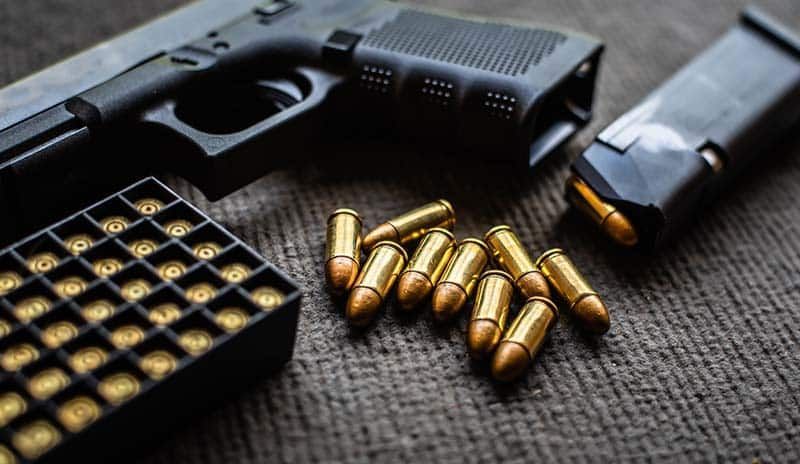
Moving overseas? That’s a whole different story.
What You Need To Know:
- Every country has different import laws for firearms
- Most require pre-approval, licensing, and declared documentation
- Firearms may be confiscated or denied entry without the correct paperwork
Tip: Contact the destination country's embassy or consulate long before your move.
International gun moves are complex and should only be done with
legal assistance or specialized services.
Will Moving Insurance Cover Firearms?

This is a question most people never think to ask—until it’s too late.
Key Points:
- Most standard moving insurance does not cover firearms
- You must declare guns and purchase separate coverage
- If firearms aren’t declared, you may not be able to file a claim if they’re damaged or lost
- To stay ahead of surprise costs and coverage gaps, learn how to Avoid Hidden Moving Fees by asking the right questions before booking.
Always ask your moving company about firearm-specific valuation and protection plans.
Safe And Legal Gun Moves: Final Thoughts
Firearms can legally be moved across state lines and even by some moving companies—as long as the proper steps are followed. However, you must always take responsibility for understanding and following the law.
- Research federal and state laws thoroughly
- Confirm mover policies ahead of time
- Consider handling firearms yourself or through a licensed FFL
Moving doesn’t have to be complicated—but firearms add a layer of responsibility. Plan ahead, follow the law, and protect your property properly.


